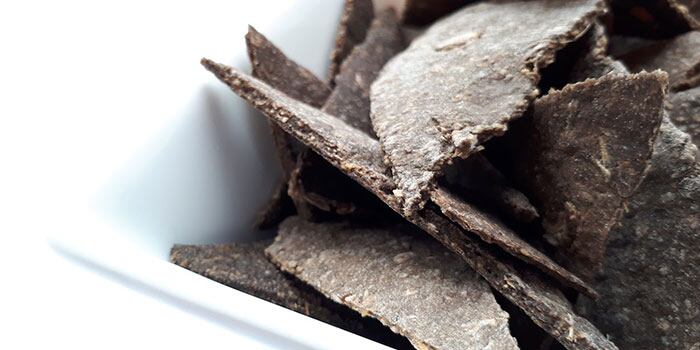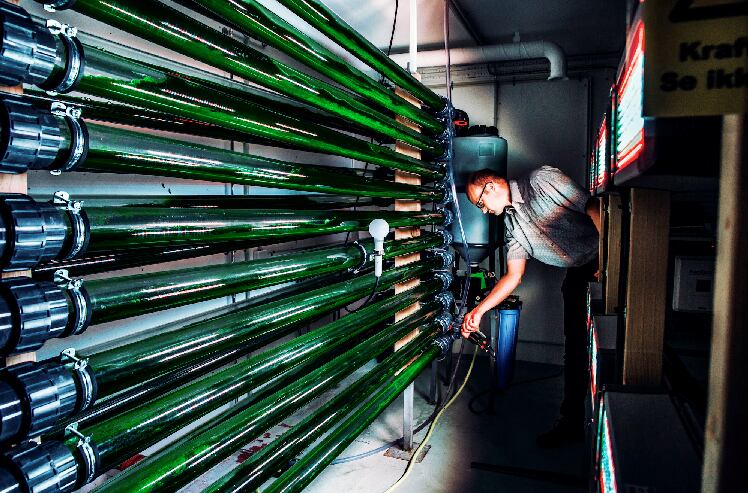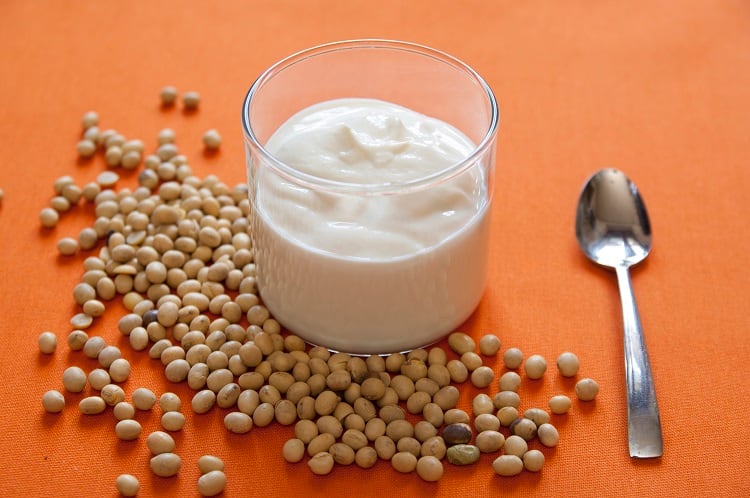The start-up replaces approximately 20% of the malt in most of its beer with excess rice from sushi production. The starch from the rice is filtered out using patent-protected technology.
Science Brew also collects excess natural hops and yeast residues for their health benefits, and instead of using energy to dry malt remaining from the brewing process, the start-up rolls and filters it to create new and unique food ingredients.
Beyond ingredients, Science Brew is also working with DTU to upcycle these by-products into new food products. One of its most recent inventions include ‘beerchos’ and a dip with a texture it describes as similar to that of tapenade.
Upcycling brewers’ spent grain
Brewers’ spent grain (BSG) is the main by-product of the beer brewing industry, with approximately 42 million tonnes of spent barley discarded around the world every year.
However, BSG is nutrient rich. According to DTU, BSG contains a considerable amount of protein, sugars and antioxidants, and as a result, researchers are intrigued by its potential use in food products.
Indeed, DTU has experimented with BSG in a number of applications, including as one of three key ingredients in a plant-based ‘yoghurt’, alongside soy drink and lactic acid bacteria. Other concepts include incorporating BSG into fibre-rich muesli bars, and using it to replace a percentage of meat in sausages.
Once a batch of beer is brewed, Science Brew puts the spent grain through a proprietary filter press to separate it into a liquid and a dry matter.
The dry matter is then ground into a flour, before being mixed into a dough using some of the excess liquid. From there, the dough is rolled out, cut into triangle shapes and baked. According to the start-up, the resulting chips ‘resemble and taste’ like nachos, hence the product’s name: Beerchos.
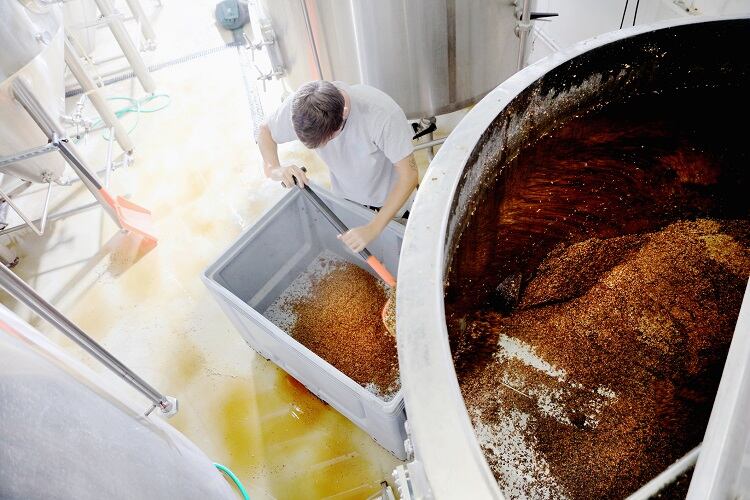
A dip for Beerchos has also been developed from upcycled ingredients. Using the flour and liquid from the spent grain, together with some of the hops and yeast used in the brewing process, Science Brew has developed a malt spread to accompany the chips.
“Both of these products can be flavoured, and Science Brew has developed a range of prototypes with different flavour combinations,” fermentation expert and DTU Associate Professor Timothy John Hobley told FoodNavigator.
They can also be scaled-up to produce ‘large amounts’, Hobley continued. “The idea is that all of Science Brew’s by-products are kept in the food processing chain and are used to make products like snacks and dips, so none of these things such a spent grains, and spent yeast etc, need be thrown away.”
Protein, fibre, and antioxidants
The BSG imparts protein, fibre and antioxidants into the Beerchos chips. According to Science Brew Food Hub’s head of food innovation and development, Anca Elena Onciu, Beerchos contains up to 50% more protein than similar crackers, and contain 10% more amino acids. The fibre content is twice as high as conventional crackers, yet the calorie count is lower.
“One-hundred grams of Beerchos can provide you with half of the recommended daily dose of protein, and if consumed with the malt spread, it can provide 70% of the recommended daily protein intake,” she told this publication.
Indeed, the exploitation of BSG protein (~20–35% w/w) is of ‘huge interest’, particularly as a source of protein concentrate with techno-functional applications or health benefits, Onciu continued.
“Essential amino acids represent ~30% of the total protein content, with lysine being abundant. This is significant because lysine is often deficient in cereal foods. BSG proteins have the potential to act as functional ingredients for the management of diabetes and hypertension,” she added.
The fibre content in BSG (eg. AX, β‐glucans) is also of particular interest, due to their potential health benefits.
“The fibres found in brewing by-products can stimulate gut microbiota to produce bacteria that protects you against pathogens, induce immune responses, reduce cholesterol synthesis, stimulate colonic blood flow, enhance muscular contractions and may protect the colon against cancer development.”
To obtain such effects from fibres, it is recommended to consume 8g of AX-rich fibre per 100g of available carbohydrates, the food innovation chief elaborated.
One-hundred grams of Beerchos or malt spread can provide the required amount of fibres for that effect, as Beerchos contains 9.3g fibre per 100g, and the malt spread contains 7.5g per 100g of product.
Antioxidants also play an important role in the products’ nutritional profile. “Fifty grams of Beerchos, together with 50g of malt spread, can provide you with the daily dose of phenolics and antioxidants – which is 120mgGAE per 100g,” explained Onciu.
“Most of the phenolic compounds of the barley grain are contained in the BSG and a significant amount in spent hops, which can have an anti‐carcinogenic effect, anti‐apoptotic effects on immune cells and possess immunomodulatory effects.”
Beerchos’ high protein, fibre, and antioxidant content, begs the question: are these products regarded healthy snacks?
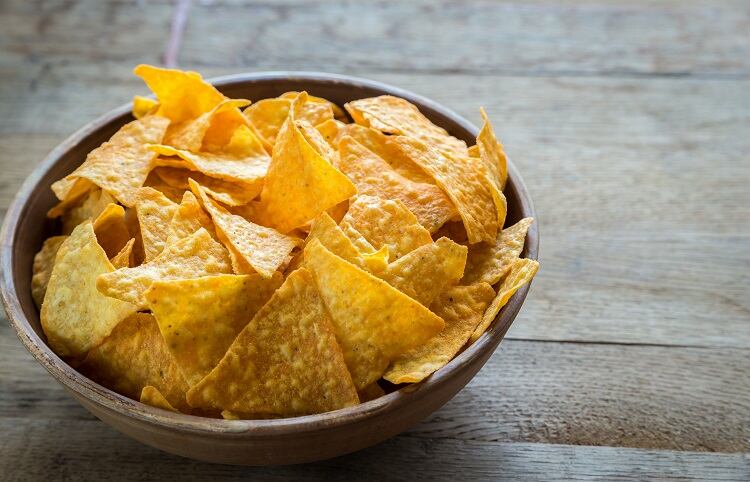
“When you say healthy snacking, people think about veggies, fruits, or something that is not that tasty, but it's not the case here,” said Onciu.
“Our snacks are inspired by the beloved tortilla chip, taste delicious, and can be as addictive as other snacks with the exception they are unlikely to cause any damage due to the fact they are crafted using natural ingredients, carefully chosen so they can all provide benefits together.”
Commercialisation strategy
Moving forward, Science Brew plans to scale-up production to market these new products itself.
However, licensing out the technology, Science Brew founder and brewer Tino Rabe Tønnesen revealed, could also be part its commercialisation strategy.
“We would like to produce snacks, dips and similar [products] ourselves. We have tons of ideas and the possibilities are numerous. That is why we have the Science Brew Food Hub. Besides this, We hope to cooperate with start-ups who also work within the circular economy area, to develop new products by using our technology.
“However, the market is really big, so we are also looking into licensing the tech for breweries.”


